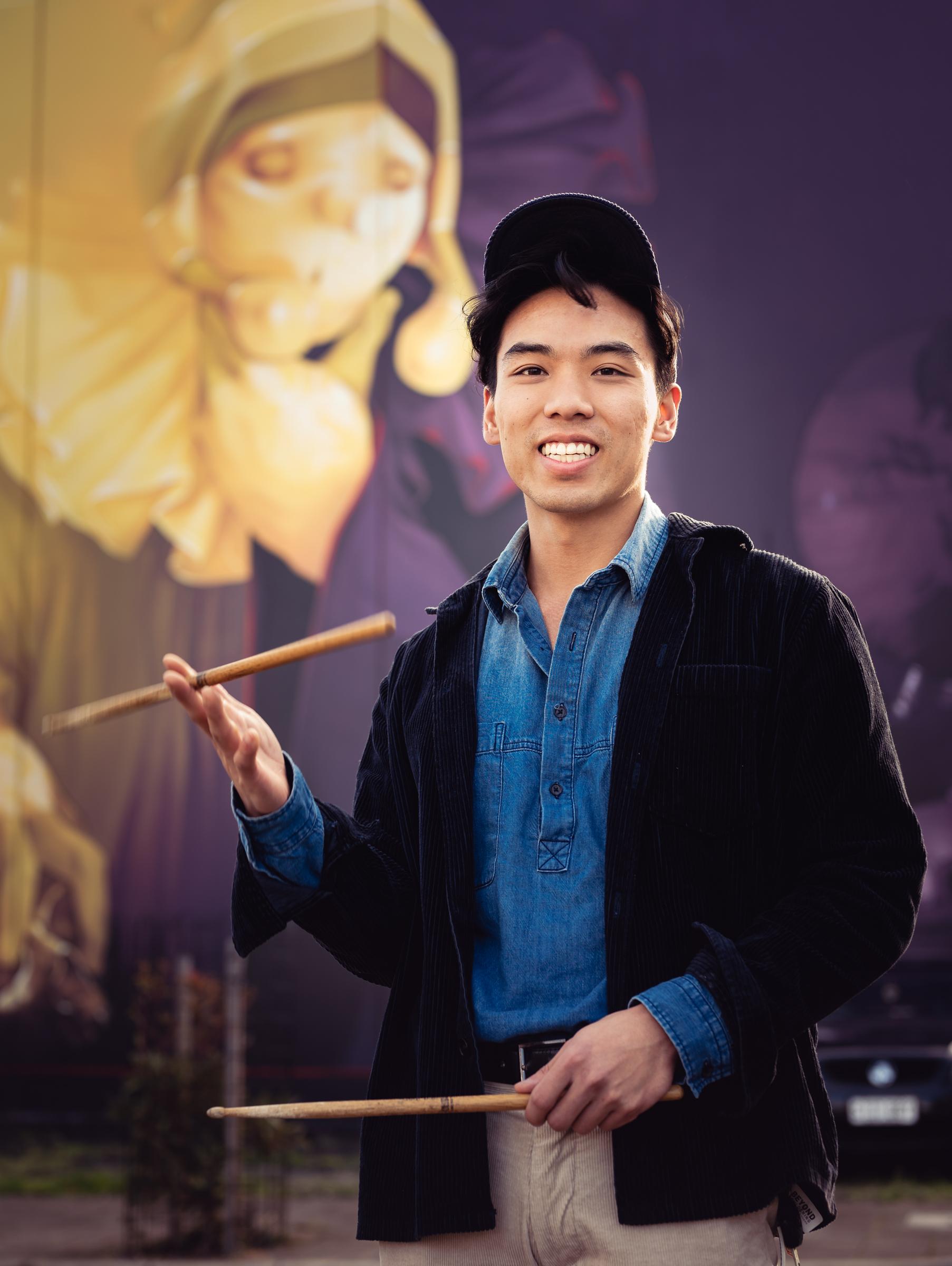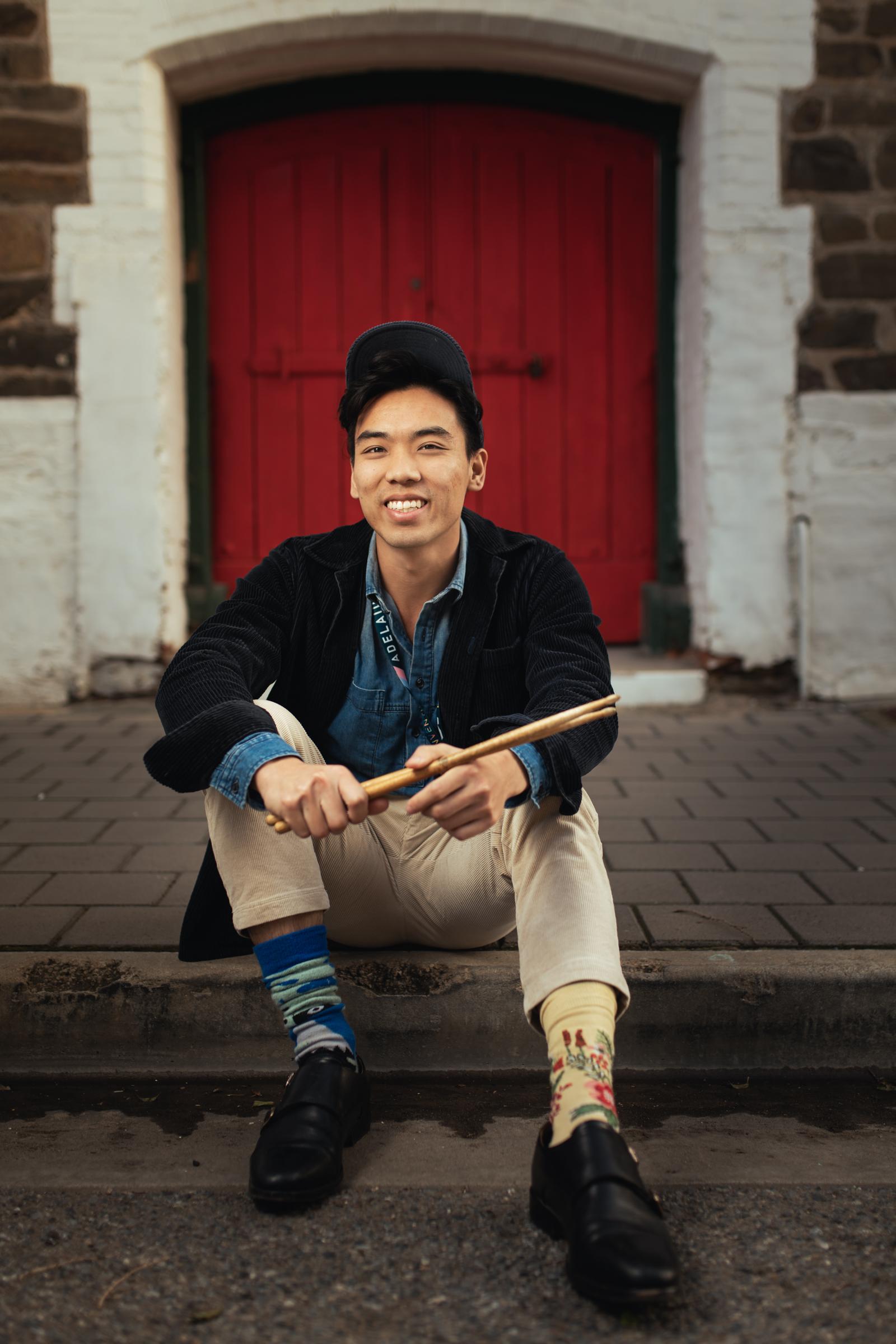Connected Conversations | Huy Pham
A medicine degree at the University of Adelaide usually takes six years to complete. However, this year, Huy Pham took the unconventional path of pushing pause on his medical studies to pursue a passion for research in an Honours Degree of Bachelor of Health and Medical Sciences. Not wanting to stray too far from his roots, he is also the Adelaide Medical Students’ Society’s Education Programs Coordinator and Deputy Convenor for the Australian Medical Students’ Association’s 2021 National Convention. A strong advocate for mental health wellbeing, Huy’s hope is to have a positive impact on the world in some small way.

Please tell us a little bit about yourself.
Hi! I’m Huy, a Vietnamese Australian honours student. My pronouns are ‘he/him’ — nice to meet you.
This year, I have been undertaking an Honours Degree of Bachelor of Health and Medical Sciences with the School of Public Health between my fifth and sixth years of studying medicine at Adelaide. I have also taken the opportunity to develop and discover a few other endeavours in my life.
My honours project is — as every honours student will tell you — constantly developing, but I have a passion for paediatrics and a research interest in Machine Learning and Genomics. Merging these three seemingly distant fields, I am researching the relationship between genetic variants and MRI in cerebral palsy using a machine learning model.
Outside of research, I have taken up a broad range of extracurriculars and passion projects, ranging from teaching and starting a podcast, to running a conference and oil painting. I like to keep busy and constantly learn so this is my way of finding that satisfaction in my life.
What was your first area of study and what drew you to this space?
I started with a Bachelor of Medicine, Bachelor of Surgery at Adelaide in 2016, which feels like both a lifetime ago and also yesterday. I think, if you ask most medicine students this question, you’ll get similar answers but, for me, medicine is the perfect storm of everything I was looking for in a degree and career — combining my subject interests with a human aspect, a pinch of problem-solving, a celebration of lifelong learning, and a sense of fulfilment. It’s all sounds clichéd but it’s true!
What has been your journey to get where you are today?
Interestingly, taking a year off medicine to pursue an honours year would typically be considered a deviation from the status quo. In a typical year, you wouldn’t even reach double digit numbers of students doing this. I guess my motivations to take an honours year really stemmed from wanting to learn tangible and supported research skills and to have a breath of fresh air. Not to say I don’t enjoy medicine, but a change of pace once in a while opens up so many opportunities and perspectives.
What are you working on now?
Right now, my team is starting to work on coding the MRIs for classification. This will form the basis of one of our ‘outcomes’ — essentially, if we change X, what happens to the MRI? Overall, my research is exciting for me because it feels like its teetering on the cusp of the next wave of medical research. Even as a proof-of-concept, this project has the potential to combine two very new but powerful tools in research. For myself, I just want to learn, but it’d be amazing if my work helped to reveal new associations or paved the way for future projects that can help real, individual patients.
What do you love most about the University of Adelaide?
The culture. I can only really speak from the point of view of a medicine student but, from day one, I have loved immersing myself in the culture, activities and societies of the University. The connection you have with others is what makes life interesting and the culture I have experienced here has really allowed that to happen over the past 5.5 years.

What opportunities do you see for the future?
Personally, I have a very strong interest in improving the mental health and wellbeing of students. Recently, I had the incredible privilege to speak as a panellist for the ‘Crazysocks4docs Day’ in Adelaide. This opportunity helped me understand how far we have come in changing toxic cultures in medicine but also how far we have to go.
My focus for 2022 will be on advocacy for better mental health and wellbeing services that approach the problem meaningfully. ‘Meaningfully’ is being thoughtful about the impact of every measure, rather than providing tokenistic solutions. ‘Meaningfully’ is listening and adapting over time to real voices, not surveys. ‘Meaningfully’ is working in tandem with students to understand what they need and what you can provide. Time and time again, I have seen the toll that poor mental health and wellbeing has taken on myself and others around me’ so improving this in every way possible is a key opportunity for the immediate future.
Have you ever had a life-changing experience?
When people think about life-changing experiences, it’s often something quick but I think my life-changing experience has been helping lead the Australian Medical Students’ Association’s National Convention team for the past 2.5 years.
Back in July, we were meant to have our event but were put in the impossible situation of cancelling with the developing COVID-19 situation around Australia. This experience has simultaneously been the most fulfilling, most enjoyable, most frustrating, most heartbreaking, and most challenging experience I have had in my life. It would be an understatement to say that working with the amazing team of 86+, over 100 years of combined work has changed my life.
What’s something most people don’t know about you?
I gigged in an indie rock band almost weekly for almost four years in the Adelaide scene!
What’s the motto that you live by?
Not a motto, but I firmly believe that life is better when you explore any small thread of interest you have and when you look for those threads in places you wouldn’t expect (i.e. do other things too!).
What TV show are you currently bingeing?
I’m watching Brooklyn Nine-Nine for about the fourth time now if you count that as bingeing. It’s hilarious, simple as that.
What do you hope to achieve in the next 10 years?
I can’t plan my day, let alone the next 10 years, but I would be very happy if I knew I had made a positive impact on the world — whether that’s through my patients, my students, my research, or my family and friends.
